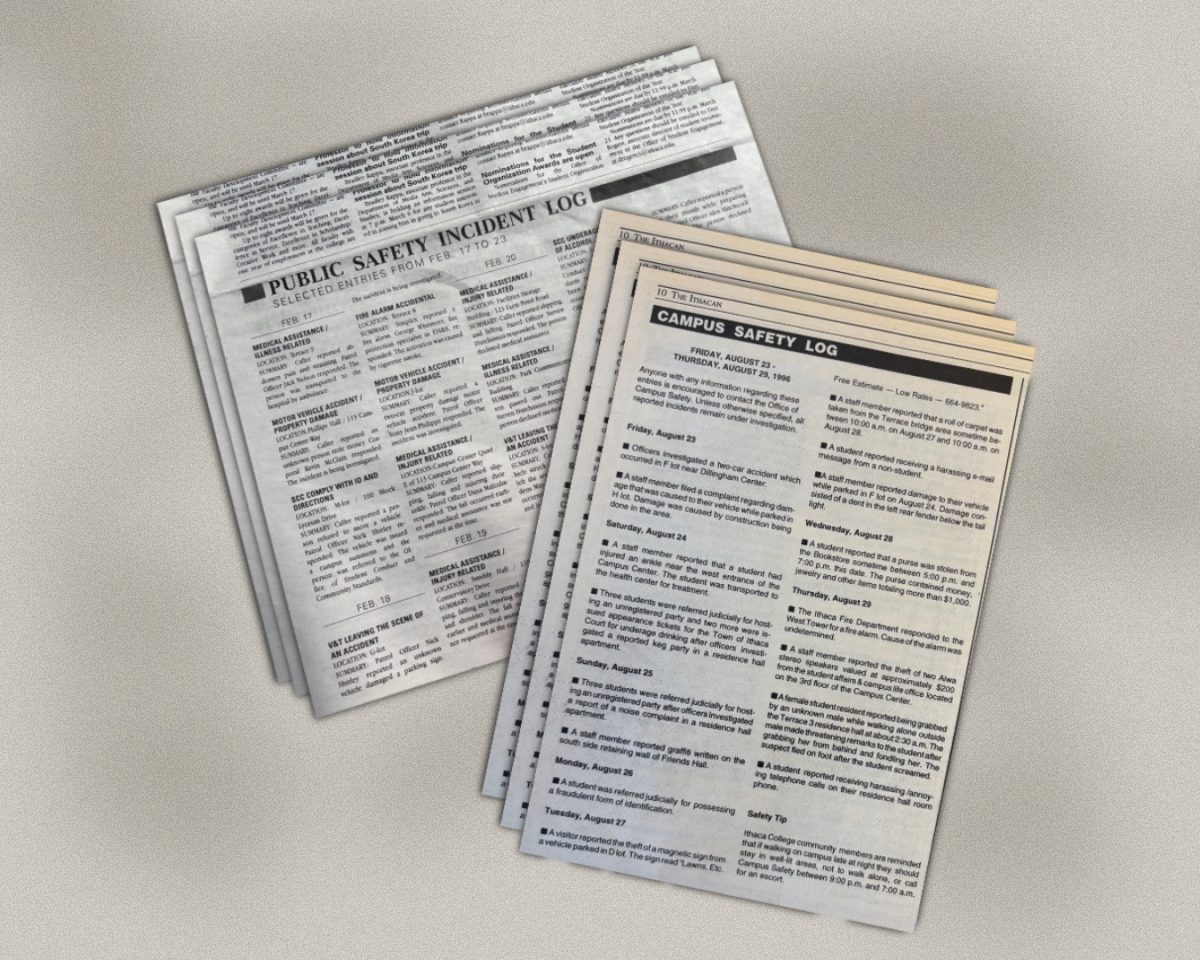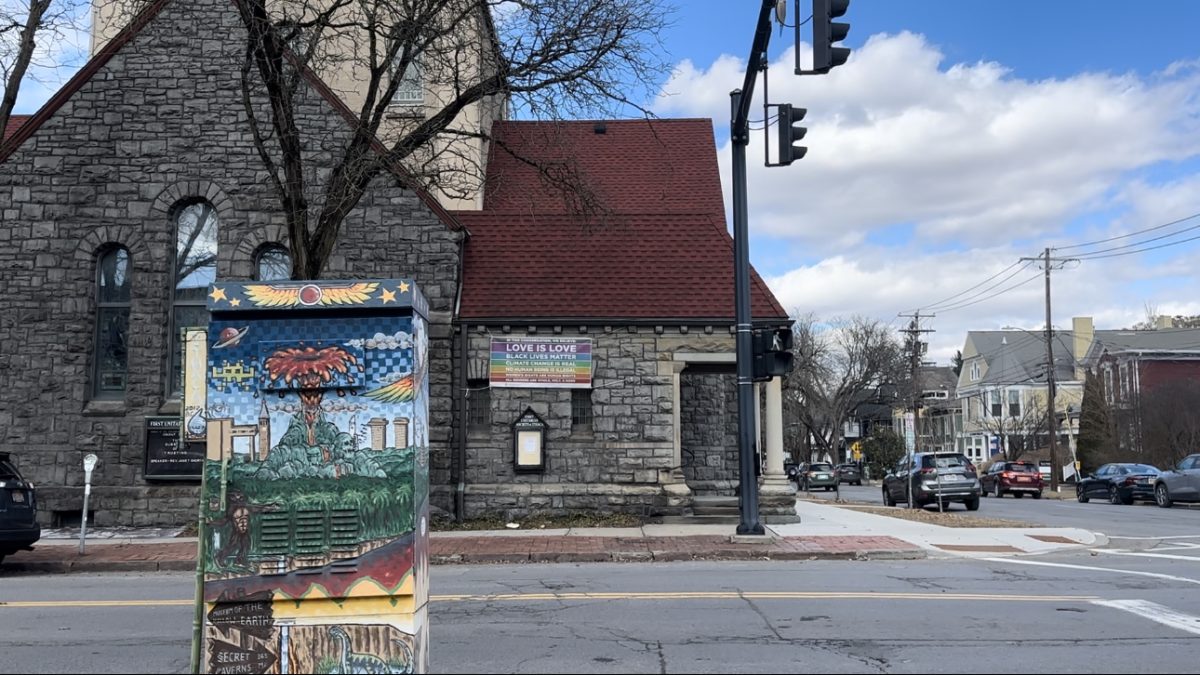
Comic books have long been a staple of American culture. Present-day superhero movies have catapulted Marvel and DC Comics into gigantic success — it would seem that the world still craves their other-worldly idols.
In recent years, comic conventions have also increased in popularity. Next to San Diego’s Comic Con, Ithaca has one of the longest running events for comic fans from all around the area.
Ithaca’s 44th Annual Ithacon took place the weekend of March 23rd with a range of activities and events.
At 1 p.m. in Ithaca College’s Emerson Suites, super fans in costume marched up and down the aisles, entertaining spectators with their cosplay outfits and showcasing the diversity of the comic book community.

Among the attendees were veteran writers who sat on panels to share their experiences with the different comic characters, pinnacle storylines and personal anecdotes.
Roger Stern was the Senior Writer of the Superman series at DC Comics and also worked for Marvel. Stern recalls the early days of Siegel and Shuster’s Superman, when the Man of Steel took on political aspects of society, even if the character wasn’t considered to affiliate with a particular party or school of thought. Early Superman fought corrupt landlords and politicians.
Following his revival in the 1980s, Superman continued to combat the culture of corruption in business and politics, and was consistently at odds with his arch-nemesis Lex Luthor, the evil head of a powerful corporation.
“Politics have always been a part of comics, as long as there’s been comics — in early journalism and newspapers comics were part of absorbing the politics around them,” said Stern.
“It’s always been there, sometimes it’s emphasized more than others and sometimes Superman goes out into space and has to deal with Brainiac — but he always comes back to Earth.”

Louise Simonson, another DC Superman alumna who worked with Marvel in the creation of the X-Men and Power Pack comics, also noted how she’s always appreciated comics that bring in new perspectives and represent all kinds of people and their struggles.
While writing the Power Pack comics, Simonson covered topics directly affecting New York City, where she was living. One story, in particular, focused on the dangerous culture of crack usage and discarded firearms in the projects where a friend of her daughter lived.
“The world that surrounds us always has an impact on the stories, but that was a specific example of an anti-crack story that I did because someone [upon] who it was having a bad effect… asked me to step in a take a stand in it.”

Every hero has had their mission, and that mission is picked by the writers and editors of the particular comic —
- Wonder Woman grappled against toxic masculinity and fought for female equality.
- Captain America combatted fictional corrupt government officials at the same time that Watergate had tarnished the public’s trust in Nixon.
- The X-Men are a group of outcasts who continue to protect the very people that don’t accept their differences, an allegory for the politics of race-relations.
Politics in comics have worked together to highlight corrupt hierarchies and societal problems, and they have done so far longer than Rotten Tomatoes has been giving scores to superhero movies that strayed a bit “too far” into political territory.
Despite the colorful pictures and minimal dialogue, comic books have always been political — with their writers purposefully choosing the storyline to highlight and criticize aspects of culture that need to be noticed.
“The people who think that are looking at the movies and saying ‘that’s not my politics.’ I think that people who see the world portrayed in a way they’re not comfortable with, resent it, and if when they see a comic book fantasy world portrayed with a liberal bent if they’re very conservative, it makes them uncomfortable and then it makes them mad,” says Simonson.
“I think it’s probably good for all of us to see images in movies and television that are different than the images we’re used to, I think it really broadens the perspective.”
Featured photo by Mila Phelps-Friedl/Ithaca Week












